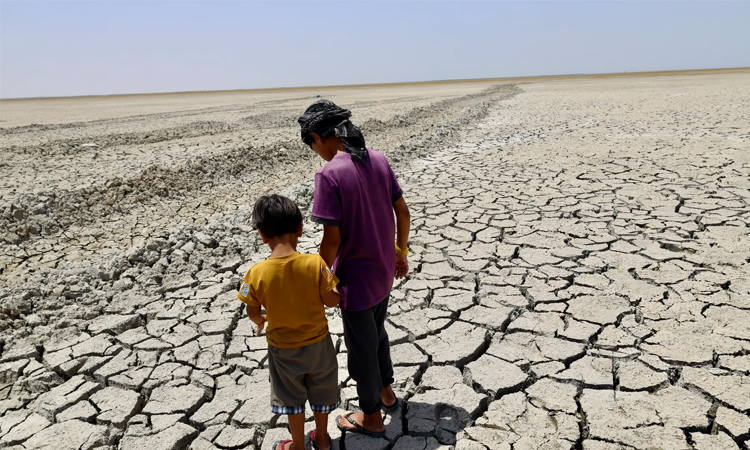News Flash

HILLA, Iraq, July 25, 2025 (BSS/AFP) - Hundreds of Iraqis protested Friday against severe water shortages exacerbated by the summer's sweltering heat in the central province of Babylon, an AFP correspondent said.
Iraq, and its 46 million inhabitants, have been intensely impacted by the effects of climate change, experiencing rising temperatures, year-on-year droughts and reduced river flows.
Authorities also blame upstream dams built in neighbouring Iran and Turkey for dramatically lowering the flow of the once-mighty Tigris and Euphrates, which have irrigated Iraq for millennia.
In the village of al-Majriyeh near the city of Hilla, more than 300 angry protesters urged the government to take action and solve the long-standing water issue, a day after the police dispersed a similar protest.
"We have been without water for 35 days and it has already been scarce for years," protester Saadoun al-Shammari, 66, said.
Another protester Kahtan Hussein, 35, said "it is our basic right, we don't want anything more."
"We don't have any water and the pipes have gone dry."
Iraq's water resources ministry has said that "this year is one of the driest since 1933."
It added that Iraq currently retains only eight percent of its water reserves capacity.
The ministry warned that the decline in water and the "lack of cooperation from upstream countries will worsen the crisis and threaten the country's water security."
In May, the ministry's spokesperson Khaled Shamal told AFP that Iraq's water reserves were at their lowest in 80 years after a dry rainy season.
In the southern province of Diwaniyah, where several villages have suffered for years from water shortages, residents have recently protested, urging the government to address the scarcity affecting both drinking supplies and agriculture.
Water shortages have forced many farmers in Iraq to abandon their lands, and authorities have drastically curbed farming activity to preserve drinking water supplies.